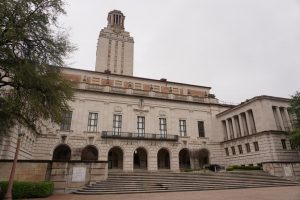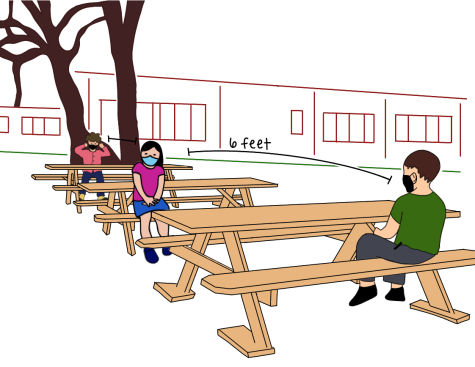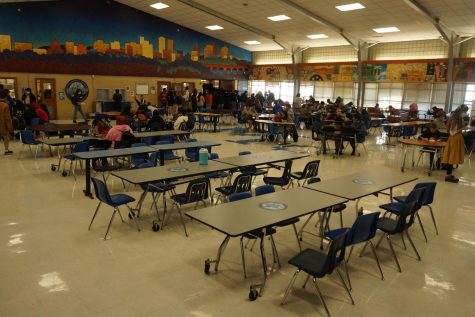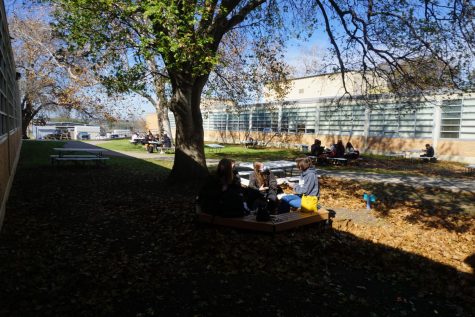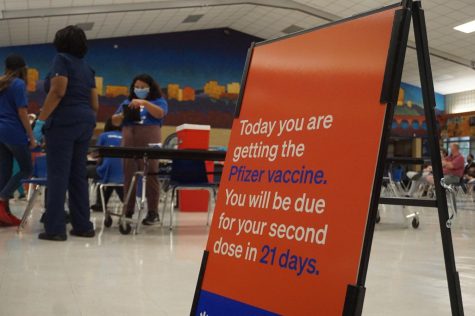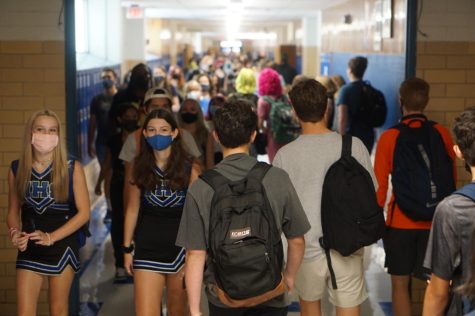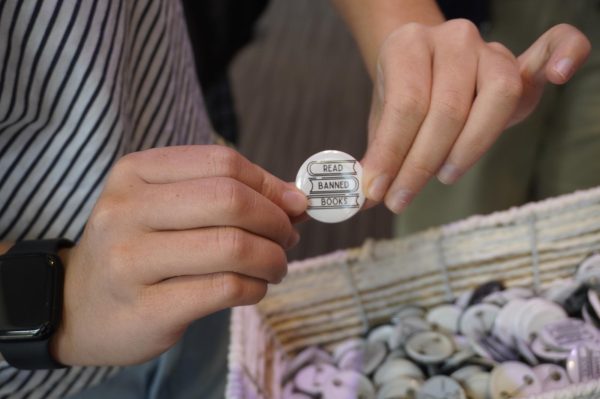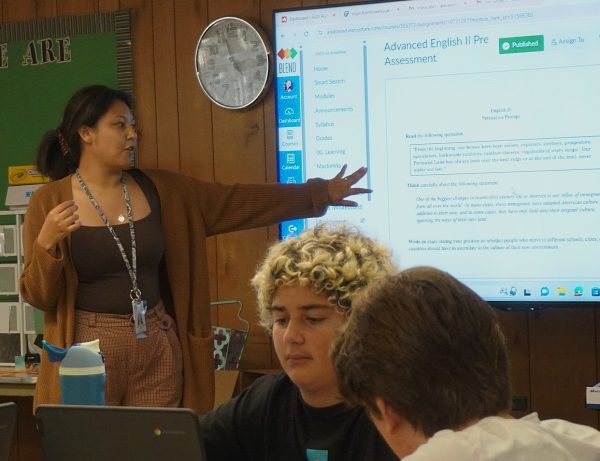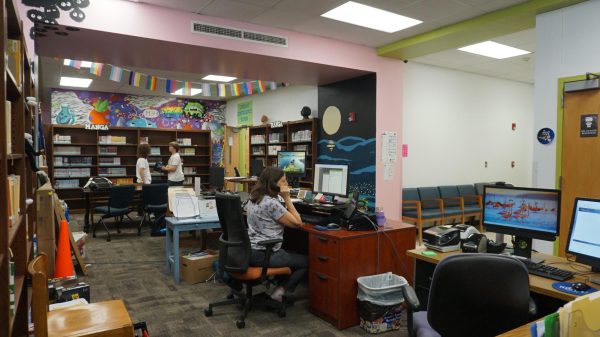Universities, school districts respond differently to threat of omicron
Less virulent, more contagious, latest variant fuels huge demand for tests
As a school bus drives by on Sunshine Drive delivering students to campus for the first day of the spring semester this morning, AISD students and their parent wait outside the McCallum Art Center on the third day of AISD’s districtwide antigen COVID testing program. According to the district, 14.5 percent of the tests at all 11 sites came back positive on the first two days of testing.
UT Dallas puts off the start of spring semester classes.
Texas State University temporarily makes spring semester classes virtual.
Thousands of U.S schools delay the going back to school post-winter break. From Michigan to Georgia to New Jersey.
The cause: Recent rises in COVID-19 cases. More specifically, the omicron variant of the virus.
Omicron, which now makes up about 95% of new COVID cases in the U.S., is rapidly spreading across the country. Although it is currently largely affecting the eastern U.S. states and certain other hot-spots, the variant has continued to spread to Austin’s local communities.
“The omicron variant has mutations that make it more communicable that make it easier to spread among people,” said Dr. Don Williams, a pediatric hospitalist and an assistant professor of pediatrics at Dell Medical School at the University of Texas. “And for that reason, we’re seeing a lot more cases right now, even among people who have been vaccinated. The data out there seem to indicate so far that the illnesses that it produces are not as severe as some of the other strains. But it still produces some of the same types of illness that we saw with previous strains of the COVID.”
On Dec. 13, Travis County health officials confirmed the first three omicron cases in the county. The cases were detected in three University of Texas students.
“[Omicron] was just coming on the scene as we were ending the semester,” said Stephennie Mulder, an associate professor at the university. “Somehow, they’ve just decided preemptively to insist that everybody teaches online. I’m not sure whether that’s a reaction to the activism that we did in the fall. I imagine they were just worried.”
Although UT Austin’s campus plans to remain open when students return, faculty have been requested to teach remotely for the first two weeks of the semester. The announcement followed a same day report by the Statesman noting that UT had reported the second highest number of new cases the university had experienced in a day.
“I wasn’t very surprised,” Mulder said. “I just feel kind of tired and sad right now because it feels so relentless. They don’t have mandatory testing, vaccination or masking. So there’s no way for the university to have a real sense of how widespread COVID is in the community or how much of a danger it is to anyone.”
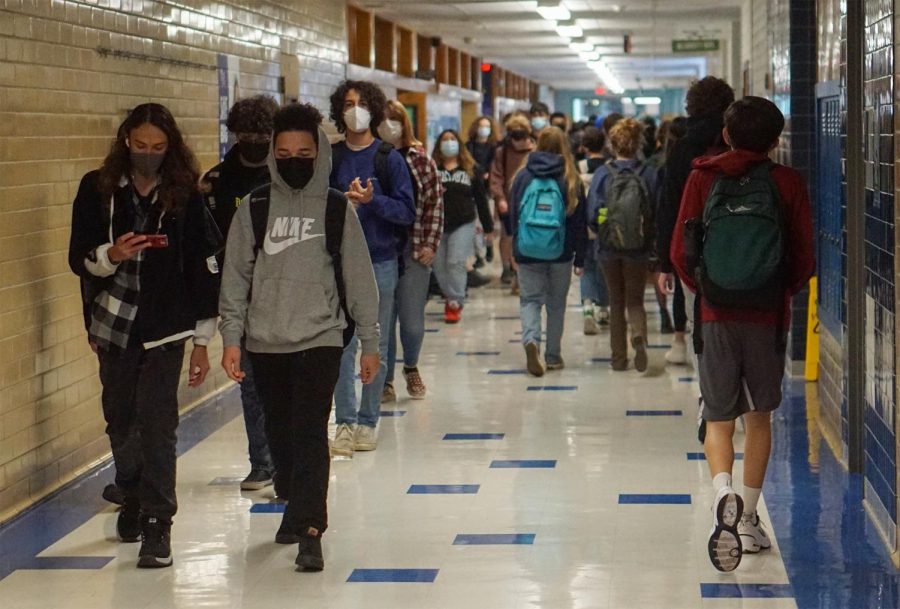
Because of the fast spreading nature of the omicron variant, health officials infer it is likely the variant makes up about 92% of cases in Texas, passing delta and other variants as the dominant strain.
“There seems to be two [differences between omicron and other strains],” Williams said. “One: More widespread and easier to infect people. And two: Not as deadly. There are dramatic numbers of people who are becoming infected. Something like two thirds of our society has been vaccinated at least somewhat against the virus. And last year, essentially no one had. And so it really is a testament to how infectious this particular strain is.”
On Dec. 29, Austin health experts raised the county’s COVID-19 risk level from a Stage Three to a Stage Four.
“The same things that work for the other strains continue to work for this one,” Williams said. “The most important intervention that anybody can make is getting fully vaccinated and boosted. The more people in our community that are fully vaccinated and boosted, the harder it is for the virus to spread. Beyond that, the same types of things that we were doing before are useful like wearing masks and keeping distance, especially when indoors.”
The same day Austin assumed Stage Four, AISD sent out an announcement to families and teachers in response to Austin’s rising cases stating the district would return to classes today as previously scheduled.
The announcement endorsed getting boosted as a method of protection against the virus, suggested utilization of AISD’s COVID testing hubs, and advised double masking.
“Our layered protocols work,” Superintendent Stephanie Elizalde said in the announcement. “We can do this. Our kids need the schools to stay open.”
The 11 AISD testing hubs reopened Monday post winter break.
The testing hub at McCallum found itself overwhelmed with students and staff in line to be tested and ran out of COVID tests by noon on the first day back open.
On Tuesday, McCallum ran out of tests about a half hour before the hub was scheduled to close at 2 p.m.
“We waited in line for a little over 30 minutes,” said sophomore Coco Gravois, who received a COVID test at McCallum yesterday. “It wasn’t comfortable because of the cold, but I understood that they needed to take their time. We had to wait about 20 minutes to get our results.”
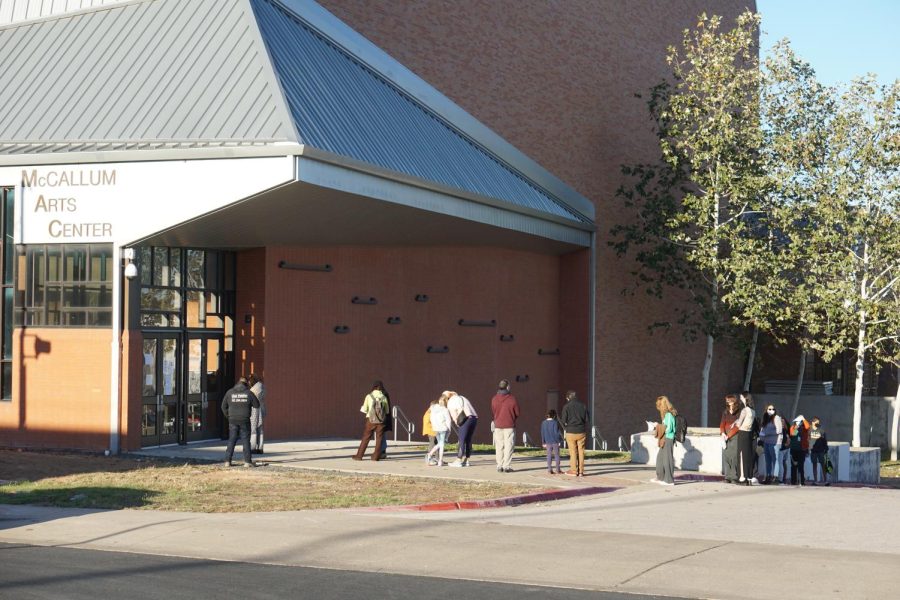
The AISD testing hubs are currently utilizing antigen rapid tests due to PCR tests being backordered. Many other testing locations in Austin have been overwhelmed, and most stores have been sold out of at-home test options as well.
“I know that trying to buy them at the stores has been really difficult lately because they’re selling out so fast,” Gravois said. “I think it’s great that we were given the option to get tested entirely free of charge. It’s a very important service that they’re providing to so many people that couldn’t get it otherwise.”
KXAN reported that a third of the 1,200 tests taken at the AISD testing hubs on Monday came back positive.
An email from the district sent to families stated that the combined percent of positivity from the Monday and Tuesday tests was 14.5%. However, the antigen tests used have a significantly lower positivity rate than PCR tests, meaning it is likely the percent of positive cases is higher.
Today, McCallum administration sent out an email to families confirming 41 positive cases from Dec. 21 through 4:30 p.m. this afternoon. Previously, McCallum had reported only 58 cases for the entire fall semester.
As cases continue to rise due to the impact of holiday travel amidst the Omicron variant, different education institutions have had to make difficult decisions.
At Texas State University, unlike UT Austin or AISD campuses, all classes will be virtual until Jan. 30.
“Given that the University maintained in-person teaching for the entire fall semester, as delta raged, and we were forbidden to mandate masks or vaccines for our classes, I was surprised to receive this news,” said Dr. Erina Duganne, a professor at Texas State. “But I was quite happy and relieved when it came. I believe this is a prudent decision that will help mitigate the spread of the omicron variant on our campus. Many students in my large classes refused to wear masks last semester, so I am also relieved to have this added layer of protection for at least the first two weeks of classes.”
Because omicron has been shown to be much more contagious than other variants of COVID-19, the university has seen an upward positive trend in new daily COVID cases since mid December according to the Texas State COVID dashboard.
View this post on Instagram
“From my own personal experience, I know more people who have tested positive since mid-December than any previous time during the pandemic,” Duganne said. “I have to also think that this decision was impacted by the surge of positive cases as a result of the delta variant at the beginning of the fall semester which Texas State could not even keep up with in terms of contact tracing or testing sites.”
Texas State falls in with many other Texas universities that have decided to halt the impending start to in -person learning either by holding classes virtually or delaying the semester in some way.
However, public school districts in Texas have had fairly mixed responses to the recent Omicron surge, with most making different decisions based on local COVID-19 climates.
“We have a little bit of ability now to predict that there will be a bad month and then things will generally settle out a bit,” Williams said. “Each individual school system can rely on guidance given by the CDC and by local health authorities, state health authorities, but I do think that a lot of the decisions that are going to be made are going to be local ones based on how the parents in that district feel about the danger of the virus versus the desire to go back to quote normal.”
Your donation will support the student journalists of McCallum High School. Your contribution will allow us to purchase equipment and cover our annual website hosting costs.



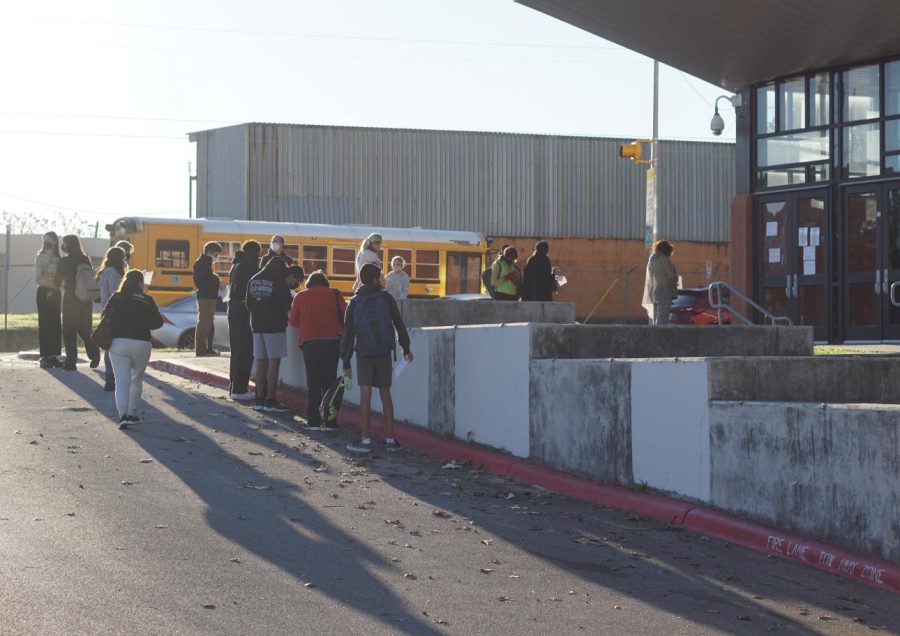
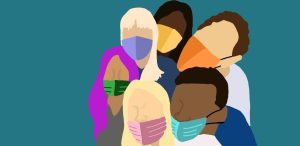
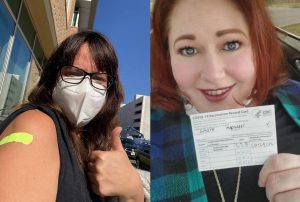
![Education Austin president Ken Zarifis, shown here speaking during the AISD budget stabilization task force meeting on Nov. 7, 2018, demanded on Wednesday that TEA and Austin ISD offer wholly online classes at least for the first nine weeks of the 2020-2021 school year. “We have heard too much from the commissioner [and] from the governor that would lead us down the wrong path,” Zarifis said. “We believe that they do not have the interests of workers, of students and their families in mind as they make the decisions that seem to be more guided by fiscal realities than human realities.” Photo by Bella Russo.](https://macshieldonline.com/wp-content/uploads/2020/07/46478948361_91ce2d2f96_o-2-300x168.jpg)
